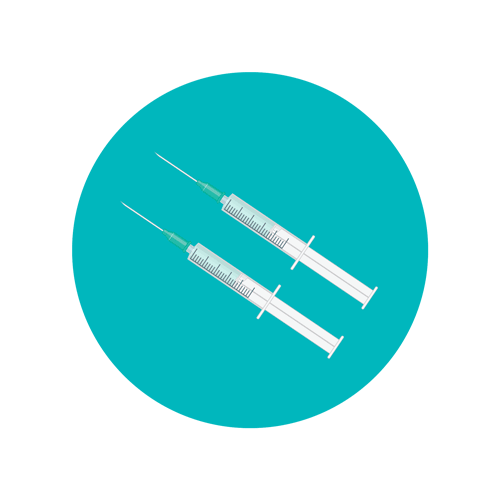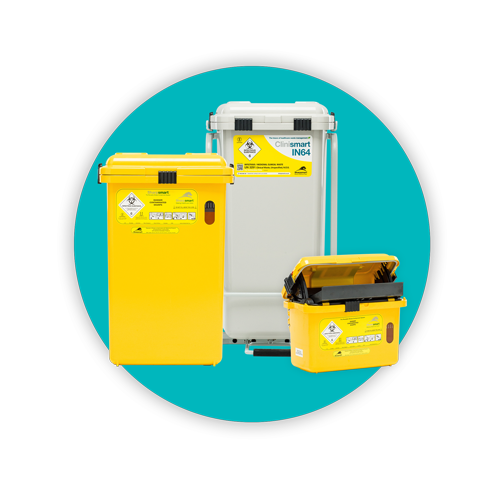Healthcare Waste Management Guidelines for Cambridge

Cambridge, the county town of Cambridgeshire, is home to approximately eight hospitals as well as community health care options, pharmacies, general practices, dental practices and local health centres. Each is required to maintain compliance with guidelines of not only the Cambridge City Council but other governmental agencies when it comes to healthcare waste management.
It is primarily important to be aware of how the city of Cambridge defines different types of medical waste and how it is to be disposed. The city categorised three basic types of medical waste: non-infectious hygiene waste, needles and syringes or “sharps”, and clinical waste.
Defining waste types in Cambridge
Clinical waste is defined as any type of waste that may pose a threat of infection to humans. This can also include drugs and additional pharmaceutical products. Clinical waste is generated by hospitals, doctor’s surgeries, health clinics, and veterinary practices, but it’s also produced by nursing homes, as well as private households. Just a few examples of clinical waste include:
- Drugs or other pharmaceutical products
- Blood or other bodily fluids
- Human or animal tissue
- Excretions
- Swabs and dressings (includes nappies)
- Syringes, needles, or other sharps instruments (sharps)
In Cambridge, hygiene waste may be suitable for black bag disposal. Though it may have offensive odours, it is not infectious. In all cases, dispose of properly to reduce risk of leakage.
Needles and syringes (sharps) used by individuals in home settings must place them in an appropriate and compliant sharps box that can then be taken to your local pharmacy. A number of participating pharmacies are located throughout Cambridge.
Residentially generated clinical waste is to be disposed of under the guidance of a general practitioner or other healthcare professional.
Hospitals, health centres, and other facilities that produce healthcare waste must follow guidelines of local and federal governmental agencies.
Local policy guidelines
Local policy guidelines for Cambridgeshire follow guidelines of the Controlled Waste Regulations of 2012 (CWR 2012) in regard to medical waste collection and recycling in the city of Cambridge and surrounding communities. The guidelines state that the District Councils as Waste Collections Authorities have a duty of care to arrange for collection of commercial waste upon request and can make reasonable charges for such collection and disposal. Policies regarding waste types from various forms of healthcare and premises are also defined.
For example, from the above-mentioned guidelines, under Section 4.1 (Residential, nursing and care homes), the document states that “waste from a residential, care and nursing homes is classified as household waste.”
Under certain circumstances, hospitals fall under these guidelines as well. Section 4.3 states that:
“waste from the hospital is classified as household waste.
a. These premises will be charged for waste collection and disposal, unless otherwise exempt, from always from its business that is carried out on site, including waste from business, healthcare facilities, and some accommodation.”
Clarification of premises can also include community based companies, charities, or nonprofits.
Such guidelines are primarily the purview of the Cambridgeshire and Peterborough Waste Partnership. However, it should also be noted that federal guidelines are also applicable throughout Cambridgeshire, including the city of Cambridge.
Safe management of healthcare waste
Legislation regarding proper segregation, storage, and transportation of healthcare waste is found in the Department of Health’s publication of the Health Technical Memorandum 07-01: Safe Management of Healthcare Waste. The document provides complete classifications and definitions of different types of healthcare waste as well as guidelines for colour coding and storage. Compliance is essential to avoid fines and penalties. Training procedures for staff and ancillary employees are also covered – and highly recommended – for any healthcare provider in Cambridge.
Availability of documentation for waste classifications is also available from numerous sources including gov.uk, printouts such as the Health and Safety (Sharps Instruments and Healthcare) Regulations 2013, and of course, the above-mentioned memorandum. Sharpsmart realises that wading through pages of regulations can be daunting, but is necessary in order to ensure the safety of all healthcare providers, patients, the general public, and the environment.
For example, is your staff knowledgeable in classifications of waste status? Would outer dressings or protective clothing that aren’t contaminated with bodily fluids be considered hazardous or non-hazardous waste? (They’re non-hazardous).
Is plaster or other similar waste, for example from dentistry services or a fracture clinic be deemed hazardous or non-hazardous? (They’re non-hazardous).
What about cytotoxic or cytostatic medicines? (Hazardous)
Is your staff aware of what colour bag infectious clinical waste is to be placed, even though it contains no chemicals or pharmaceuticals? (As such waste is deemed hazardous, it should be placed in an orange bag.)
Details are important when it comes to compliance in following federal and county regulations. Risk management is also a part of compliance. In Cambridge, as throughout other cities in England, training regarding sharps regulations is not only a safe practice, but recommended. For example, based on the Health and Safety (Sharp Instruments in Healthcare) Regulations 2013, and to be followed throughout England (including Cambridge), information provided to employees must include:
- Risks of injuries from medical sharps;
- Legal duties of care on employees and other staff;
- Good practices for preventing needlesticks or other sharps injury;
- Support available to an injured healthcare provider from their employer.
These are basic and logical expectations, and training provided to employees must also follow sharps regulations such as in the correct use of safer sharps, disposal, and steps to take in the event of a sharps injury, followed by plans to effectively respond if injuries occur.
In Cambridge as well as other regions throughout England, it is the duty of care and responsibility of a medical waste generator to properly handle, contain, and transport or dispose of hazardous waste. Be aware that any healthcare waste producers must segregate offensive waste from both clinical and mixed wastes.
Throughout Cambridgeshire, steps must follow such regulations if you’re business/facility that produces hazardous waste, stores hazardous waste, or utilises removal services to take hazardous waste from the premises.
You are also required to keep records of consignment notes, consignee returns, and any related documentation as well as any records of rejected loads.
Responsibilities for compliant healthcare waste management
Sharpsmart understands the regulations for proper and compliant healthcare waste management in the UK. It is the responsibility of all medical facilities to reduce the amount of waste that is disposed of that heads to landfills, and in assuring that medical waste has been properly segregated. To learn more about our healthcare waste management partnership and services in Cambridge, click here.
Let's Talk!
Your time is valuable, and we don’t want to play hard to get. You can either phone us directly on the details listed on our contact page, or feel free to fill out this short form and one of our team members will get back to you as quickly as possible.
